|
ONE FOR ALL...ALL FOR ONE!
The Utah Republican Party State Convention: Saturday, April 27, 2024 My Convention Report Bill Olson NOG12 Weber County _______________________________________________ After spending an hour and a half in line to register as a delegate, I entered the convention hall to find a seat. The hall was full of delegates of which almost half raised their hands as first-time delegates. Shortly after the prayer, pledge of allegiance, approval of the rules and the agenda we got started. I was standing at the microphone waiting for my turn as a delegate to gain the floor as a member of our deliberative assembly represented by all 29 counties in Utah. As a deliberative assembly, our state delegates meet at our state convention to determine, in full and free discussion, the election of our state candidates and courses of action to be taken by our Party. To hold more efficient meetings and respect the opinion of each member, we adhere to the rules of parliamentary procedure. We are there to exhaust all debate before any vote is taken or decisions are made. Debate cannot be exhausted if it is restrained and that is what happened here today. Prior to the Convention there were many of us delegates concerned about the direction of the Party and its leadership. Since the success of SB 54 our caucus/convention system has been essentially neutered. This unconstitutional legislation forced on the Party by big money interests has created a path to getting their candidates elected without the hassle of delegate scrutiny or Party endorsement. With the deterioration of election integrity over the last few election cycles, many in the Party have related concerns about the method of elections at our Convention. The State Central Committee (SCC) is the Policy making body of the Party. Members are elected by every county; these committee members operate as the legislative branch of the Party with the responsibility of governing the Party as a deliberative assembly. That means they make the rules by majority or in some cases a super majority using Roberts Rules of Order. Roberts Rules allows for the majority to rule while acknowledging the rights of the minority. Under these rules, the SCC determines how the Party business is conducted. Prior to our Convention there was concern by many delegates and members of the Party that Leadership, the executive branch of the Party, tasked with executing the will of the governing body, was scheming to use an electronic voting system rather than paper ballots as decided by the SCC. It seems there are members of the Party with commercial interests in promoting their electronic voting services (https://www.innogov.io/) who have achieved leadership positions in certain Convention Committees, the very committees who are tasked with executing the policies of the SCC. According to our Republican Party Constitution, these committees are “recommending bodies only.” So why then do they make decisions in direct opposition to the SCC? When it was discovered by a few of us that for this convention, Party leadership had no intention of securing election integrity by executing on the SCC’s call for Paper Ballots, many state delegates objected. Several months before the convention, we pushed the Party to play by the rules and a petition was generated and signed by over 400 state delegates in less than 10 days directing Party leadership to use paper ballots as determined by the SCC. (https://docs.google.com/spreadsheets/d/1lkzSmiEl8OFwTSO8aVSWjtkqjeMBvcfb5OYMBiI4B-o/edit#gid=841220358). To “protect the vote” Paper Ballots are also recommended by the Republican National Committee (RNC). “The Republican National Committee boldly opposes means of voting that do not have the proper safeguards in place and are exclusively electronic and calls on every county and state in the nation to use as the default ballot systems, which are fully auditable, namely hand-marked, voter-verified paper ballots to ensure every voter is memorialized by a paper record;” Electronic voting is not secure and personal information is at risk. Once exposed, leadership, rather than follow the directive from the SCC to use paper ballots, moved away from the conflict of interest using certain committee members commercial product, to another electronic voting system called Election Buddy (in the ironies of ironies, even Election Buddy supports Paper Ballots (https://ripl.se/uB). This voting system uses an application that allows you to scan with your phone to vote. The problem is this scan allows for the service to capture the data on your phone and according to their Privacy Policy, use it as directed by the UTGOP for their own commercial benefit (https://electionbuddy.com/privacy-policy/). Have you ever looked at a website on your phone and several days later you walk by a service similar to the one you were looking at and just like that, their ad appears on your phone? Party leadership has a special purpose in infiltrating your phone...they want to use technology to profile you and make money from the profile information gathered without your active knowledge. On the agenda was also an amendment to change the current public record requirement in our Constitution that provides “at a minimum, the name address and phone number” of all party elected positions and instead the amendment seeks to redact all contact information except your name. Should this pass, our Weber County Conservatives patriot training will cease! All data will be controlled by the Party and sold or provided only to those the Party chooses. Couple this with their retrieval of all your personal information on your phone and they will control it all and you will have nothing. Back to the microphone where I was waiting patiently. As the Elections Committee Chairman took the podium to start the process of forcing the delegates to use their electronic voting service, I called out a Point of Order. Once I was acknowledged by the Chair, I HAD THE FLOOR WHICH MEANS I CANNOT BE INTERRUPTED! A Point of Order is a parliamentarian move that can interrupt the speaker…it is used if a member feels the rules are not being followed. It requires the chair to make a ruling and enforce the rules. If he makes a ruling, you do not think is fair, you may challenge the ruling of the Chair and let the delegates decide by a vote. The delegates have the power...unless they give it up to the Chair...which is what they did here at convention. Because the body of the deliberative assembly (delegates) has the power, and the Chair is merely a facilitator of the assembly (he doesn’t’ even get to vote unless to make or break a tie). The delegates make all decisions. The Chair is there to share opinions, but any ruling of the Chair can be challenged. Once challenged, the delegates get to vote as to whether the Chair decision is overruled. Receiving much applause, my Point of Order asked a simple question... by what authority does the Elections Committee, a recommending body only, have to overrule the SCC, the governing body of the Party and foist this electronic voting on the delegates? The Chair ignored my Point of Order, a violation of Roberts Rules, and said he would get to it later, allowing the Committee Chairman to continue to instruct the delegates on how to use the electronic voting system. The Parliamentarian, there to assist both the Chair and the delegates to properly follow our rules, was silent (a violation of her own certification ethics). My persistence in having my Point of Order properly dealt with resulted in the Chair claiming he was not bound by the SCC vote to use paper ballots and proceeded to sit down. While asking the Chair if this was his decision, my microphone was turned off! I had every right as a privileged member of the assembly to challenge the ruling of the Chair and let the delegates decide whether we followed the SCC or allow a recommending body only to dictate how the elections were to be conducted. Done properly, this issue could have been dealt with in a few short minutes with the delegates deciding whether to ignore their own rules or not. Without sound, I stood there waving the microphone to get the attention of the parliamentarian and the Chair to acknowledge my rights as a delegate to speak. After all, I HAD THE FLOOR! Being completely ignored by the Chair...I dropped the microphone to the ground and promptly left the convention embarrassed for the delegates who do not understand their role in this process and angry at Party leadership for exploiting their ignorance. For the last two years, Weber County Conservatives has offered training for all elected positions in the Party including delegates to understand their roles and responsibilities. Disrespecting the rights of one delegate is disrespecting the rights of all delegates. The delegates’ silence, as my rights were trampled on, only adds gasoline to the fire of the tyranny in our government and our Party. This behavior by the Party leadership begs the question, who is in charge? Why are the rights of the assembly and the delegates involved not respected in order to conduct our convention procedures? The Party leadership’s inability to follow our governing rules is unacceptable and outrageous! Will you, as a member of the assembly, do anything about it?
5 Comments
How the Left Fooled States Into Boosting Democratic Turnout—and How to Stop ItBY Hayden Ludwig
In elections, good data separates the winners from the losers. Left-wing operatives understand this better than anyone, which is why they’ve built the world’s most impressive machine to find, register, and turn out their preferred voters—all using tax-exempt nonprofits created to encourage charity, not politics. Activists label it “civic participation” because they’re benignly registering people to vote. In reality, they’re cynically helping just Democrats vote. Conservatives have witnessed the awesome power of this election machine in states like Georgia and Arizona. But there’s one component they’ve yet to reckon with: the Electronic Registration Information Center, better known as “ERIC.” ERIC is a 501(c)(3) public charity, not a government agency; yet this privately run organization has incredible access to sensitive information on 208 million Americans—62 percent of the total population—across 31 states. ERIC claims it uses this data strictly to help its member states maintain clean voter rolls by tracking when voters move, die, or fall off the registration list. The more states that join the compact, the theory goes, the more accurately ERIC can funnel information to them. Yet shocking new discoveries about the compact’s origins reveal ERIC’s true purpose: Compiling a near-perfect picture of where America’s voters—and potential voters—live nationwide, driving Democratic victories in battleground states. Amazingly, ERIC’s membership agreement forces states to conduct expensive voter registration campaigns, yet does not require states to clean their voter rolls, the very reason most states enrolled in the compact. This is ERIC’s value to the Left, the best data money can’t buy. How the Left Fooled States Into Boosting Democratic Turnout—and How to Stop ItERIC’s Data-Driven Origins
Yet all this microtargeting machinery is only as good as the voter files that inform it. Critically, while Catalist and others could purchase those voter files, no such list of unregistered people exists. State motor vehicle departments and other agencies collect vital information on potential voters, but that data is inaccessible to companies under federal privacy laws. Worse, the most desirable demographic—young people—typically have no credit history or utilities in their name, making them virtually invisible to political data vendors. What was needed to reach this electoral goldmine was a central database on all 65 million eligible-but-unregistered individuals, but that was impossible with traditional data-collecting methods. Enter ERIC. ERIC began life in 2012 as a project of the Pew Center on the States (an arm of the liberal funder Pew Charitable Trusts) under David Becker, Pew’s director of election initiatives. If the goal was to get states to share valuable voter data with a private organization, ERIC needed a powerful selling point and the guise of political neutrality. So for the next four years Becker led the push to lobby nearly two-thirds of the states into joining ERIC—always marketing it as an opportunity to improve their voter rolls more effectively and affordably than they could do themselves. Early ERIC funding came from George Soros’s Foundation to Promote Open Society, which granted $725,000 in 2011 “to support the Pew Center on the States’ voter registration modernization initiative” and “expand [its] scope and scale.” The idea for ERIC may even have originated with Soros, who after all had previously helped found the Democrats’ premier data firm, Catalist. In 2010, Soros’ Open Society Foundations (OSF) revealed its goal of using voter registration “modernization” programs as cover to convince states they needed outside help to maintain their voter rolls. OSF termed it “reform dialogue.” OSF rallied two more left-wing organizations to the cause: the Brennan Center and Advancement Project, both of which oppose voter ID laws and lobby for the Left’s usual raft of election “reforms” such as same-day registration and felon re-enfranchisement. (Recall that the Brennan Center had already called for mass voter registration campaigns “through a modernized registration system” to advance the “progressive agenda” beginning in 2010.) UTAH SHERIFFS MESSAGE TO CANDIDATES FOR HIGH OFFICE: STOP DEMAGOGUING ISSUES YOU DON’T UNDERSTAND4/4/2024 “Any candidate blaming local officials for the failures of the U.S. Immigration and Customs Enforcement is demonstrating to voters that they don’t understand important issues facing our state and country,” said Sheriff Mike Smith, President of the Utah Sheriffs’ Association.
“It’s bizarre that Republican candidates for high office would keep repeating false statements that have been walked back by the Biden Administration,” Smith continued. “It’s even more bizarre that candidates in Utah would malign local law enforcement without first knowing the facts.” Background Last year, a draft memo was put out by ICE’s Salt Lake City Field Office Director Michael Bernacke titled “Sanctuary State Designation for the State of Utah”. In this memo, Bernacke took it upon himself to declare Utah a sanctuary state. He made absurd claims that Utah sheriffs are destabilizing ICE’s law enforcement capabilities in Utah and surrounding states. State leaders joined Utah’s sheriffs in voicing strong objection, and ICE immediately rescinded the draft memo. Historically, not all sheriffs in Utah have been willing or able to house federal detainees in county jails. Those who did contract with ICE have been subjected to unending federal mandates, regulations that are not based upon constitutional rights, legal standards not based on case law, and demands that ICE detainees receive special treatment far exceeding what incarcerated U.S. citizens receive. The demand that ICE detainees receive special privileges is accompanied by audits and threats of lawsuits from liberal Washington DC based special interest groups. The ICE policies and practices under the Biden Administration have made it impossible for Utah’s sheriffs to house their civil detainees. Now some candidates for office are openly citing the rescinded ICE memo and demagoguing on the issue using false information. As the election year continues and the political season heats up, Utah’s sheriffs respectfully request that candidates running for office at least reach out and ask a sheriff before taking positions and issuing statements that are directly related to the work they do. |
AuthorBill Olson Archives
April 2024
Categories
All
|

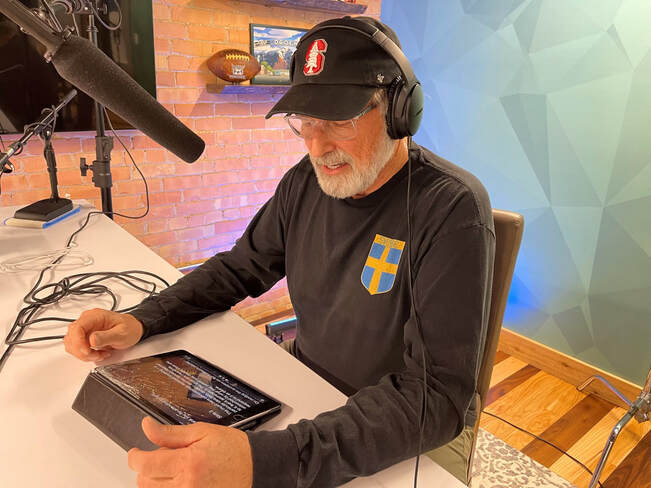
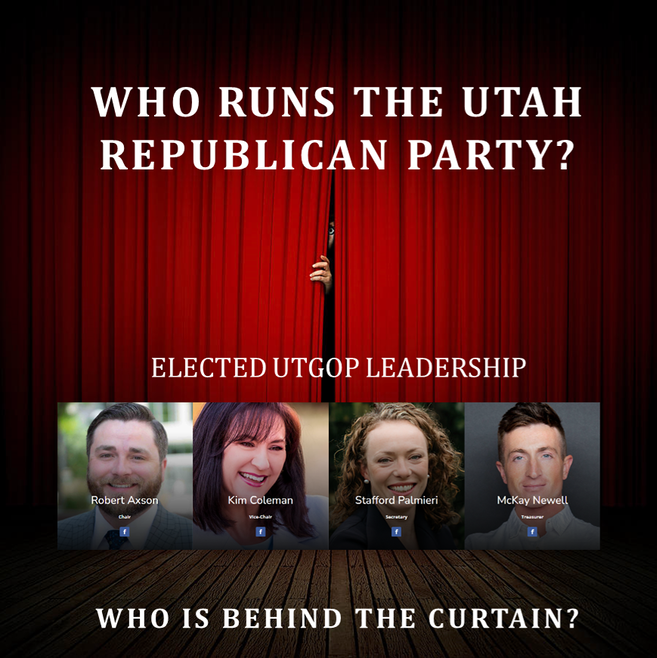
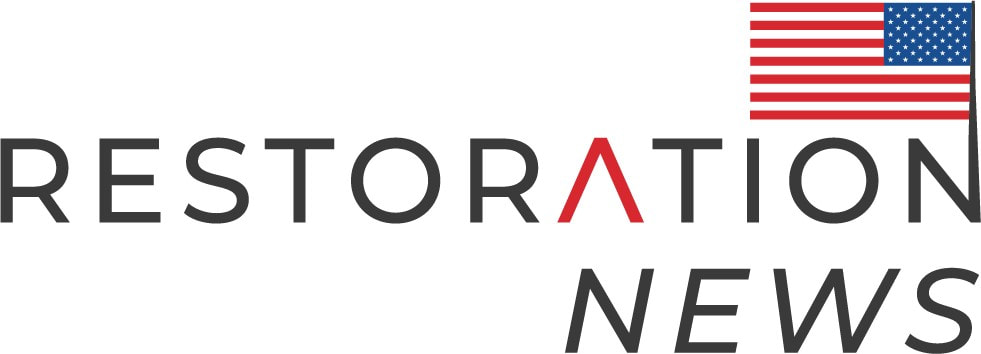
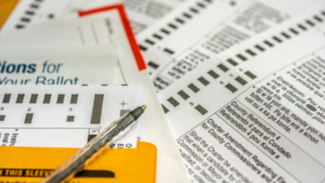
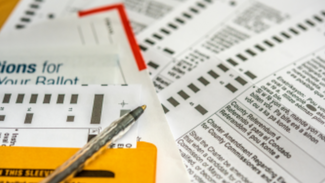
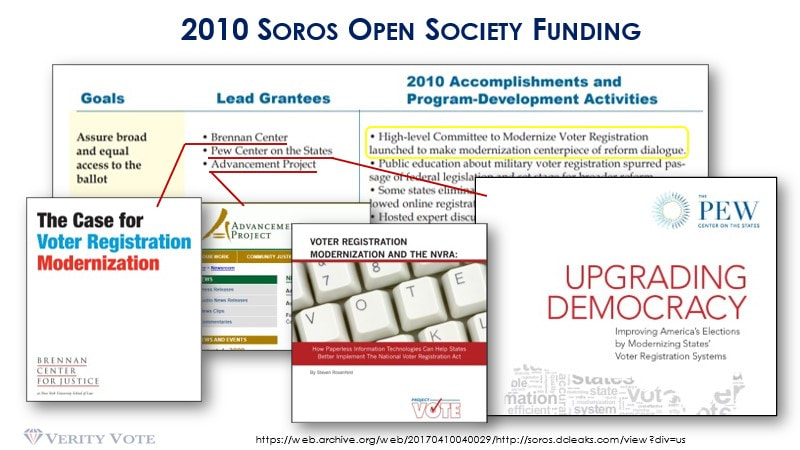
 RSS Feed
RSS Feed
